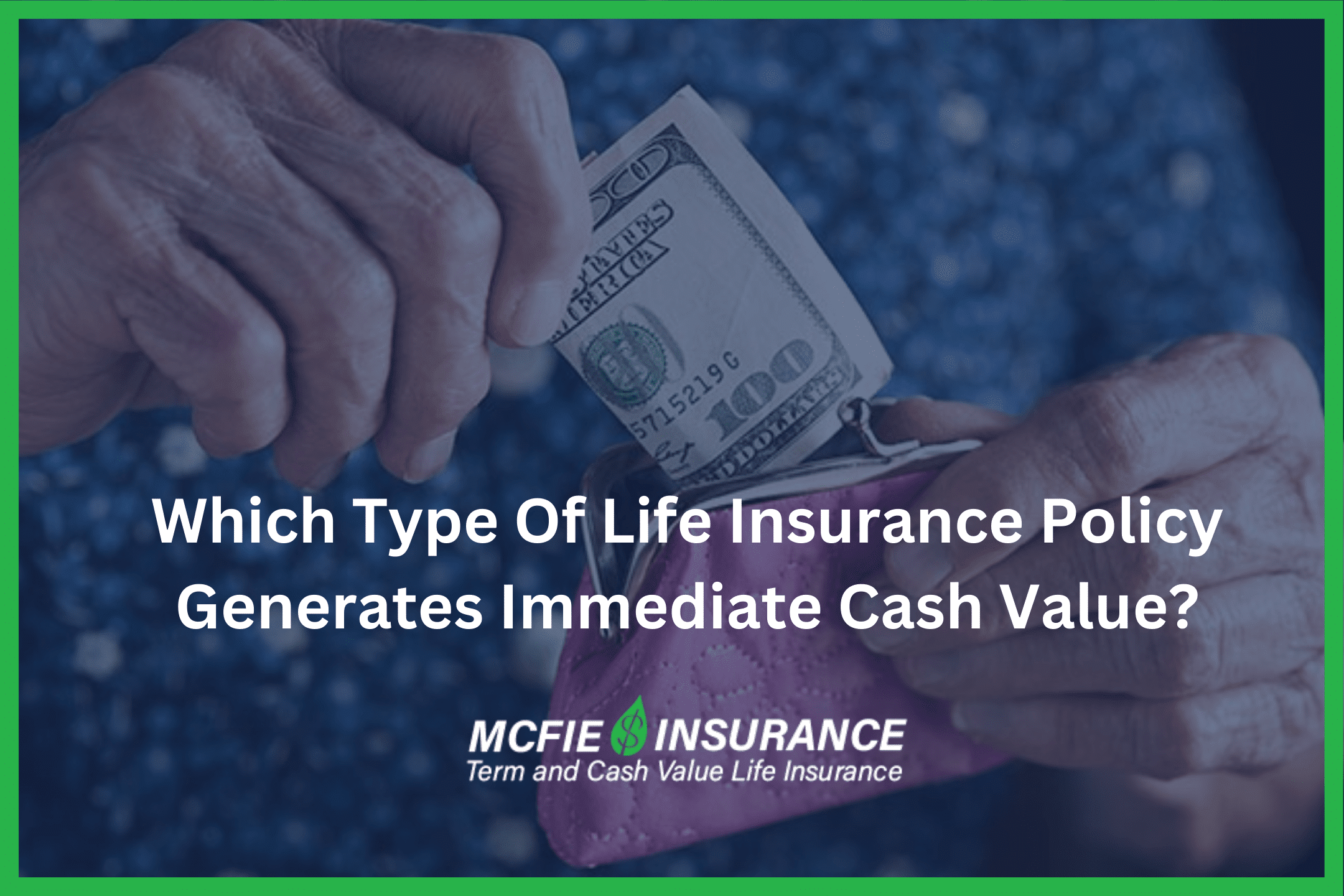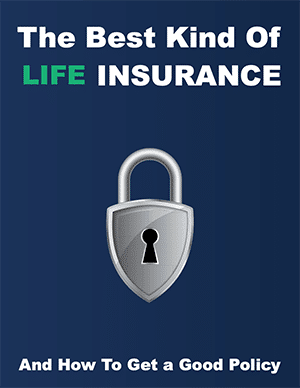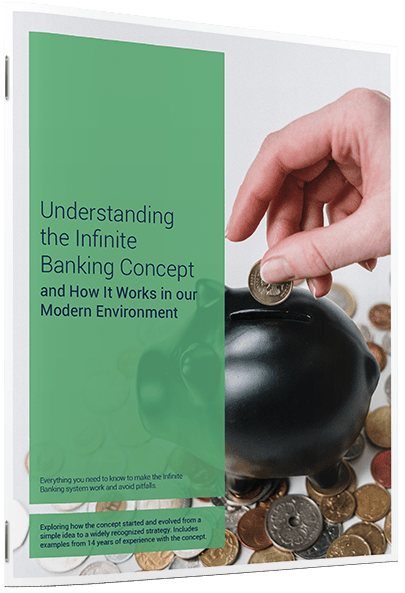702-660-7000
702-660-7000

Two kinds of life insurance can provide immediate cash value: Whole life insurance, if it’s with an added paid-up insurance rider, and Universal life insurance when it’s “overfunded.” While many people associate life insurance solely with death benefits, it’s also possible to benefit from certain life insurance policies while you’re still alive, thanks to their cash value component. This feature is a significant advantage of life insurance.
To make the most of your life insurance during your lifetime, it’s important to understand which policies offer immediate cash value. By knowing which type of life insurance provides this and the duration of the guaranteed cash value, you can choose the best policy for your needs. This way, you can enjoy the benefits now and still ensure your family is taken care of after your passing.
Whole life and universal life insurance are both types of permanent insurance policies capable of providing immediate cash value, but they’re quite different from each other. It’s crucial to grasp these differences before purchasing life insurance based on its cash value potential, as choosing the wrong policy could lead to financial difficulties down the line.

Get a working knowledge of how each type of life insurance policy works.
After reading this 10-page booklet you'll know more about life insurance than most insurance agents.
Download here>
If you’re looking for a policy that offers guaranteed cash value throughout your lifetime, whole life insurance is the way to go. This type of insurance comes with a fixed premium and a guaranteed death benefit, meaning the amount you pay and the benefit provided upon death won’t change over time. The cash value in a whole life policy grows over the policy’s duration, all while your premiums stay the same. Additionally, some whole life policies may offer dividends, which policyholders can use to enhance the policy’s death benefit and cash value further.
Universal life insurance offers more adaptability compared to whole life insurance. This flexibility can be both a benefit and a drawback for policyholders. To grasp the advantages and potential issues with universal life insurance’s flexibility, it’s helpful to get a basic understanding of how these policies are structured. Let’s break it down simply and quickly.
A universal life insurance policy consists of two main components: the insurance portion and the cash account. The insurance part uses a portion of your premiums to purchase renewable-term insurance, which provides the death benefits. The cash account holds the remainder of your premiums after the insurance costs and other fees are deducted. Over time, the cost of renewable-term insurance tends to increase each year, making it the most expensive insurance option in the long run. That’s the gist of universal life insurance’s structure – straightforward, right? With this understanding, you’ll find the following details easier to follow.
Regarding its flexibility, if you choose to pay a lower premium in a particular year for your universal life insurance, you can, as long as it’s enough to cover the renewable term insurance cost, or your cash account has sufficient funds to cover it. Conversely, you can opt to pay more than the scheduled premium, with the excess amount boosting your cash account.
The issue with the flexible nature of universal life insurance emerges when the growth of the cash account can’t keep pace with the increasing costs of renewable term insurance. If the cash account doesn’t grow sufficiently, the insurance company will deplete the cash value to cover insurance costs and then charge the policyholder higher premiums. These premiums can become so steep that continuing with the policy might not be financially viable, leading many owners of universal life insurance to either give up their policy or let it expire due to insufficient cash value and premium payments.
Though universal life insurance can provide immediate cash value, it’s not the best choice for long-term cash value accumulation. Often, due to the structure of their guaranteed values, many universal life policies eventually become unsustainable.
1) Whole life insurance (with an added paid-up insurance rider)
2) Universal life insurance (that is overfunded)
At McFie Insurance, we sell whole life insurance with paid-up insurance riders for securing immediate cash value.
We do not endorse or offer universal life insurance for ourselves or our clients, due to its inherent risks and uncertainties that make it unreliable for ensuring value when it’s most needed.

Understanding the Infinite Banking Concept and How It Works In Our Modern Environment 31-page eBook from McFie Insurance Order here>
You can tap into the cash value of your life insurance policy in three ways:
1) Taking a policy loan
2) Making a withdrawal
3) Surrendering the policy
Taking a loan against your whole life insurance policy is often the best choice if you’re looking to avoid taxes and maintain your policy’s full value. By opting for a policy loan, you can use the borrowed funds without tax implications and have the option to repay the loan to replenish your policy’s value. In the event the policyholder passes away before the loan is repaid, the outstanding amount is deducted from the death benefit before it’s paid out to the beneficiaries. For instance, if someone with a $1,000,000 whole life policy borrows $20,000 and then dies before repaying, the insurance company will use $20,000 of the death benefit to clear the loan, leaving $980,000 for the beneficiaries.
An alternative to taking out a loan is to directly withdraw from your policy’s cash value. However, it’s important to note that withdrawing funds can have tax implications. Specifically, any amount you take out beyond what you’ve paid in premiums (your cost basis) is subject to taxes. Additionally, a significant drawback of making a withdrawal is that it reduces your policy’s overall value, and unlike a loan, you can’t replenish the withdrawn amount back into your policy later on.
Another way to get to the cash value in your insurance is through surrendering the policy. This choice might suit those who’ve opted for universal life insurance without fully understanding its long-term implications. If identified early, there might still be a valuable cash sum within the policy. However, it’s important to approach this option with caution, as surrendering too early could lead to fees, particularly with universal life insurance.
Opting for surrender is generally advisable only if you’re correcting a previous decision or facing significant financial difficulties.
For those with a solid whole life insurance policy, tapping into the cash value through a policy loan is often the preferable route in most situations.
 57-page slide deck 57-page slide deck |
Many people are losing money with typical financial planning. Even people who were "set for life" are running out of money in retirement. Here's an easy guide with 3 things you can do to become wealthier. Download here> |
So, which life insurance policies offer immediate cash value?
A well-crafted whole life policy is designed to last your entire life. In contrast, many universal life policies tend to become unsustainable after a while.
Life insurance isn’t just for after you’re gone; it’s a powerful tool to support your family and even benefit you while you’re still here. At McFie Insurance, we focus on crafting top-notch whole-life insurance policies that not only secure your family’s future but also provide accessible cash value for your needs today.
We’re all about helping you hold onto more of your earnings, boosting your financial growth, and ensuring you have peace of mind when it comes to your finances. If you’re curious about life insurance, want a closer look at a policy, or think it’s time for a review of your current plan, we’re here to help. Call us at 702-660-7000 or email [email protected]
 Ben T. McFie
Ben T. McFie
There's a lot of confusion around finance; there's so much to know and it's frustrating when you don't know enough to make the best financial decisions. I like to bring clarity to financial matters so people can make good financial decisions that will help them live wealthier more fulfilling lives.